NZ Coast to Coast Race Report with Kirsty Howatson
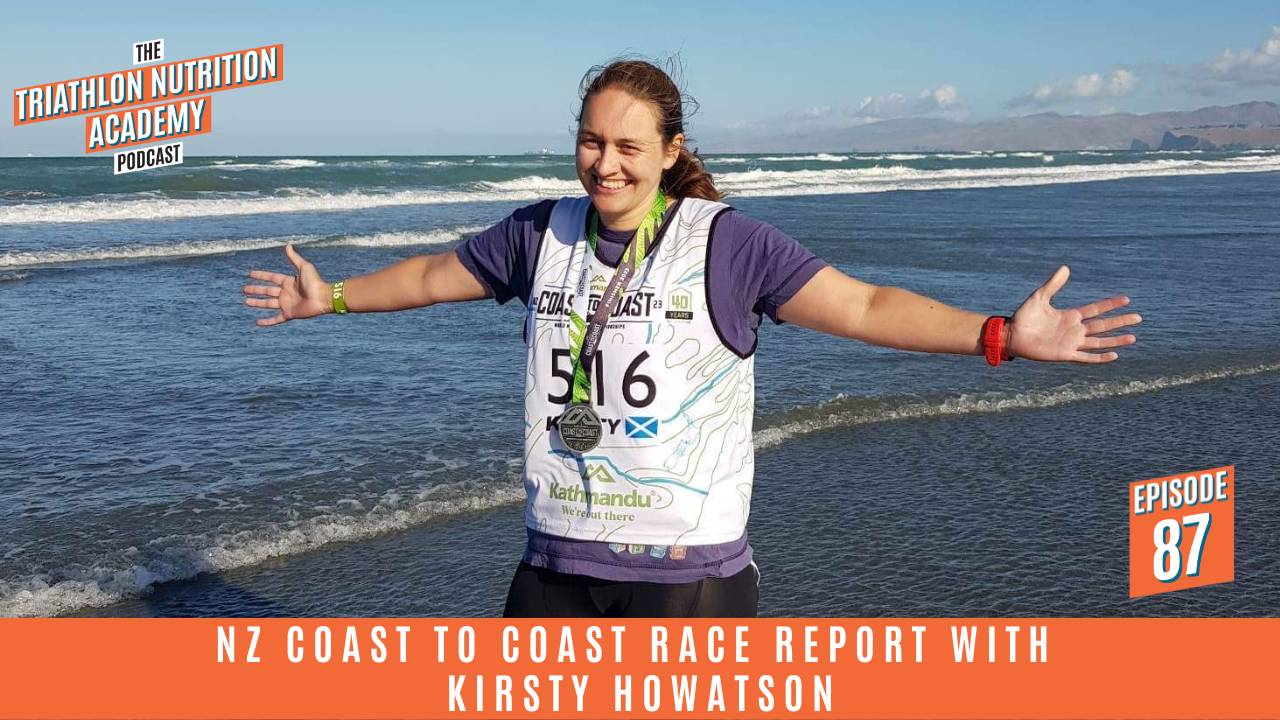
Kirsty Howatson – a past Triathlon Nutrition Academy athlete who, to date, has only done Phase One lives in New Zealand and, while not technically a triathlete, recently raced the Coast to Coast in February, which is an epic multi day event. She shared her story.
What is the Coast to Coast event?
The Coast to Coast is a race from the coast of one side of New Zealand to the coast of the other side of New Zealand.
The aim is that you're going to cross the country, which is 243 kilometres on foot, bike and in a kayak.
Over two days there is the Longest Day which is a one day event as well, which is like the world multi sport championship event – essentially the Coast to Coast that needs to be completed within 14 hours.
For the Longest Day, you start at 6 am with a 2.2 km run.
You go into a 55 km bike, which you're allowed to draft in, and then it's 30 kilometers over Goat Pass, which is just one of the passes in the middle of the Southern Alps with 1000 meters of elevation. You...
Meal Planning and Organisation for the Time Poor Triathlete
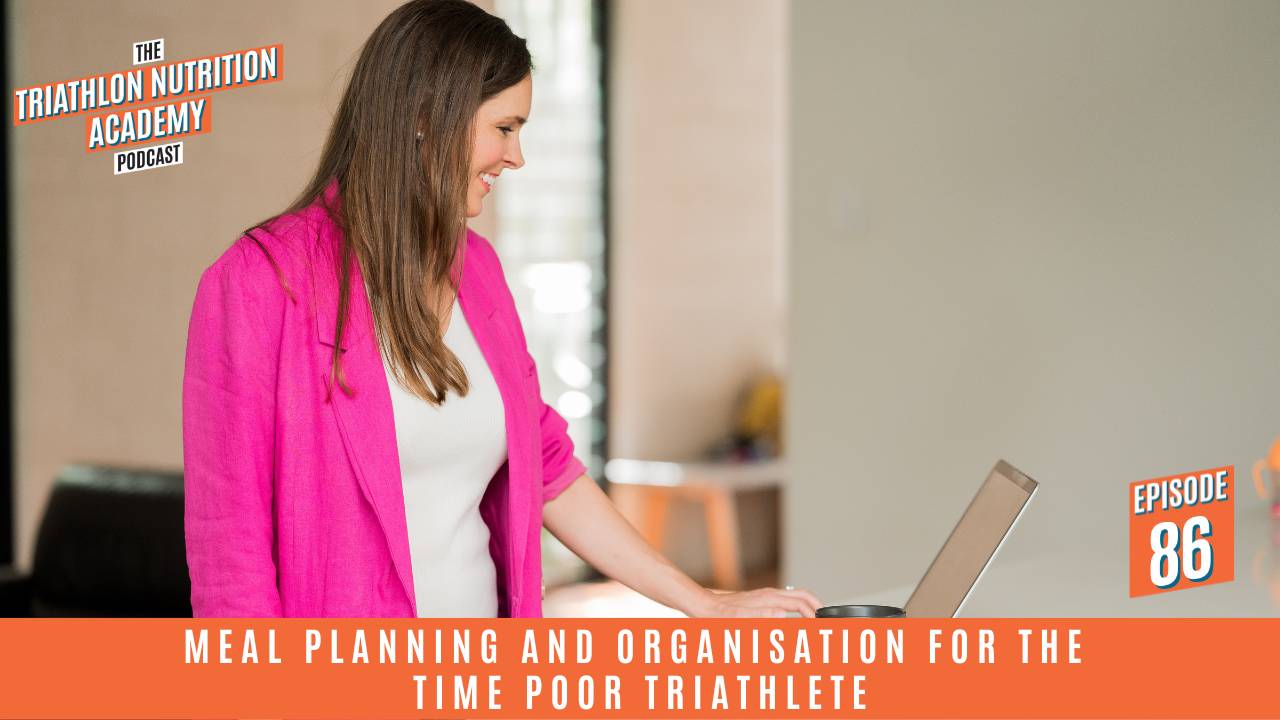
Is nutrition a bit of a blindspot for you?
Do you eat on the fly, winging it with nutrition choices and don’t really have a plan?
Is grocery shopping one of those painful adulting chores you hate and struggle through?
Well, it’s probably time to get your sh!t together in the food department!
If you want to be a successful triathlete, it’s time to get proactive with your nutrition rather than reactive. Which means that spending a little bit of time meal planning and organising your nutrition is key if you want to eat to support triathlon training.
Let me share some tips and tricks with you on how to prioritise your health and nutrition without having to spend hours slaving away in the kitchen or breaking the bank.
Fueling Your Body Like a High-Performance Machine: The Importance of Systematic Meal Planning and Organisation.
When it comes to fueling your body, you don't want to settle for anything less than the best. Just like a high-performance engine requires premium fuel, y...
The Ultimate Grocery Guide For Triathletes
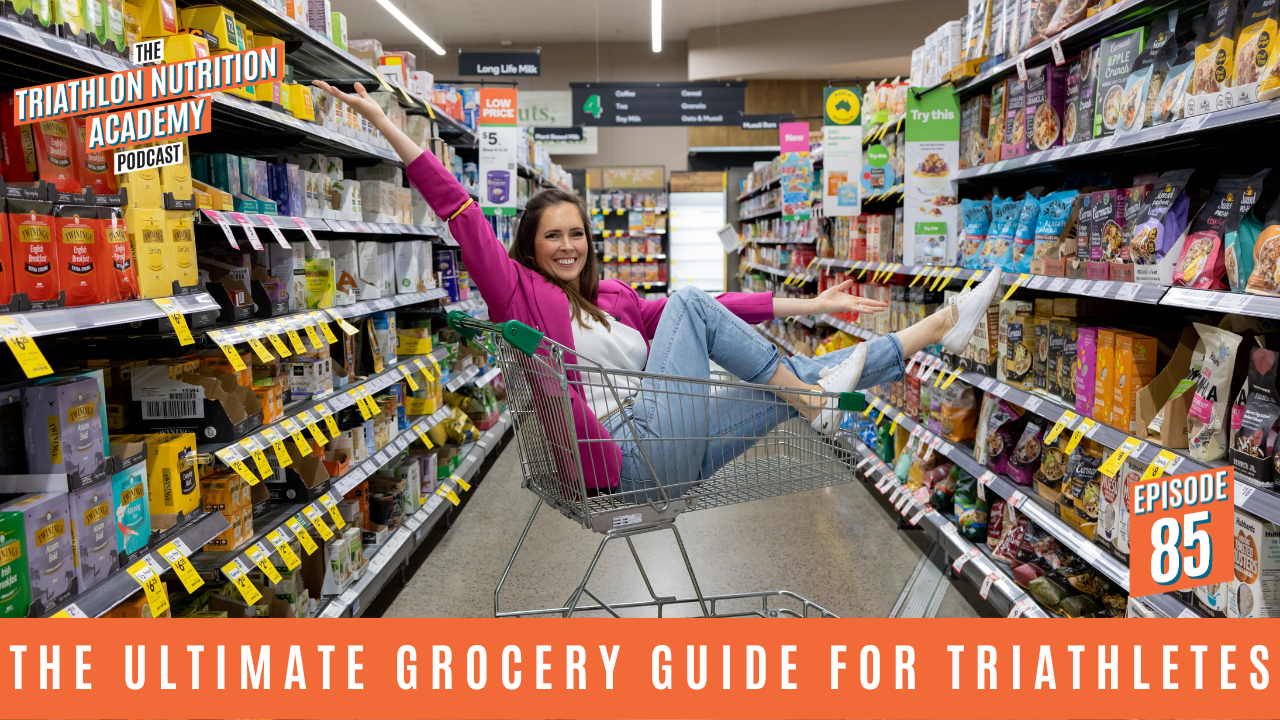
Are you a triathlete struggling with grocery shopping? You're not alone.
Many people find it overwhelming and challenging, especially when it comes to picking the healthiest, most nutrient-packed foods at the best price. But don’t stress! I’ve put together the Ultimate Grocery Guide for Triathletes to help you shop SMARTER and FASTER.
As a sports dietitian, I believe that nutrition is the fourth leg of triathlon. You have to swim, bike, run, and eat. My passion is to set you up for success now and in the long term, not just a quick fix. The grocery guide provides the foundations to help you structure your shopping trip to get all the things you need as an endurance athlete.

Here are my top tips:
1. Go in with a plan
As a triathlete – your nutrition differs from the general population – you can’t throw anything in your trolley and hope for the best.
Make a choice for health and performance because nutrition is the make or break when it comes to a good training block or a bad one...
New Supplement Alert! Is Bicarb Worth Investing In?
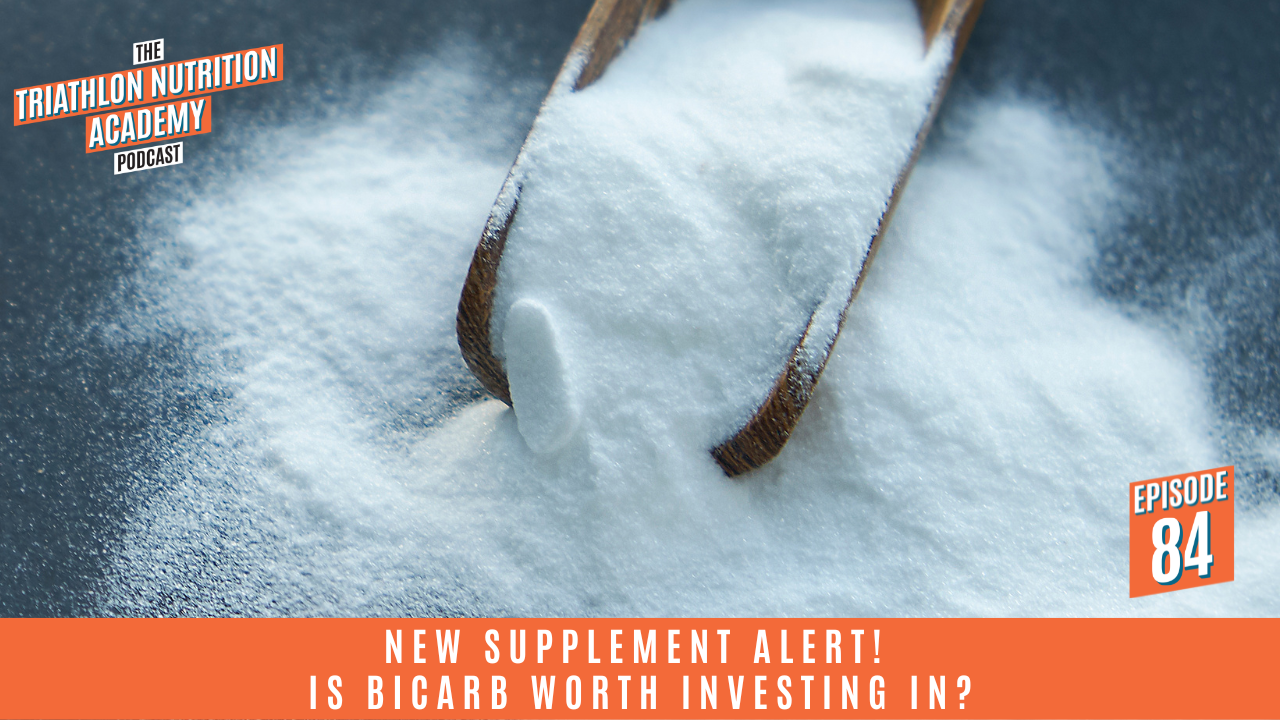
So, what’s the deal? What is sodium bicarbonate? How does it work? And is it something you should be looking at?
There’s a new supplement on the market from one of the big supplement companies that markets heavily to triathletes – bicarbonate aka bicarb of soda, baking soda or sodium bicarbonate.
Athletes within the Triathlon Nutrition Academy get to dive deep into this during the program, but I thought it was important to provide you with a quick summary – so you can make an informed decision on whether it’s worth the investment.
So, what’s the deal? What is it? How does it work? And is it something you should be looking at?
Sodium Bicarbonate
Sodium bicarbonate is produced by the body and it's an integral component of our body's primary pH buffering system.
Also known as bicarb soda or baking soda – a white powder you buy from supermarkets, used in baking to help food rise.
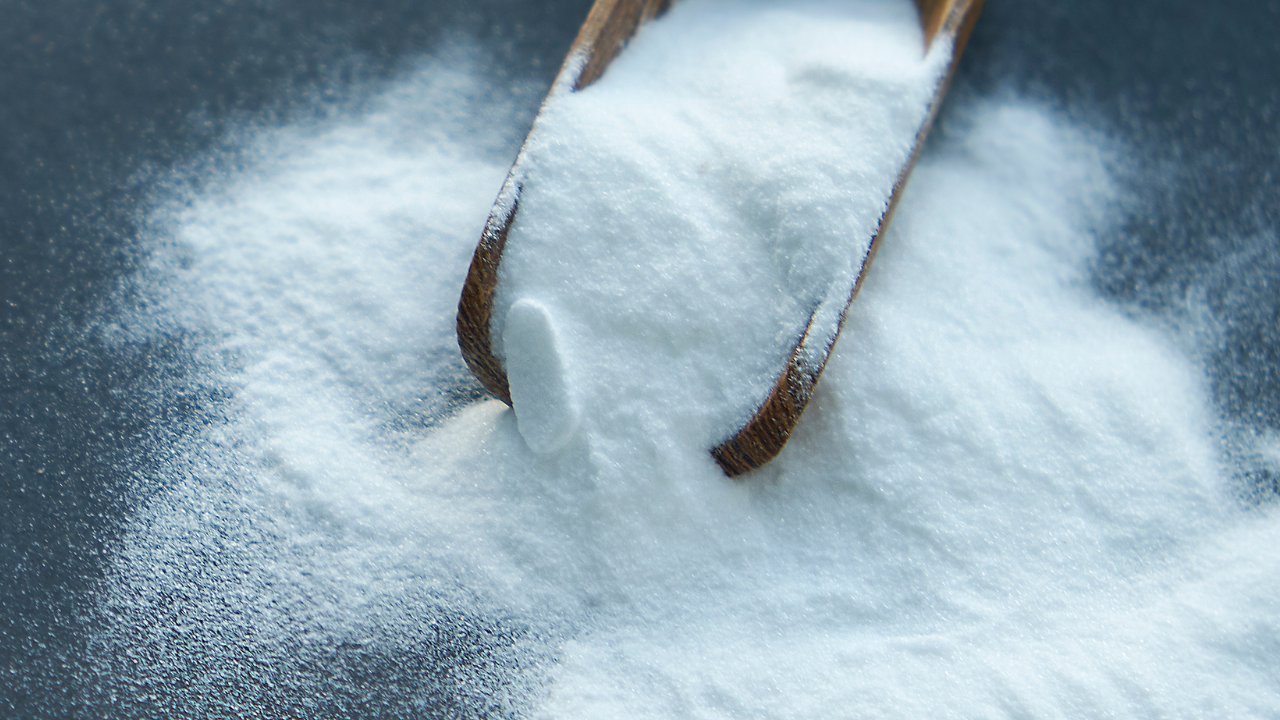
Why would you use sodium bicarb to improve exercise performance?
To help answer that question, w...
Do You Need to Take a Multivitamin?

Vitamins play many important roles in the body.
There are 13 essential vitamins our body needs for normal, healthy functioning.
Our body cannot make these itself (or cannot make enough of them) so, for the most part, we need to get them through our diet.
When vitamins are missing from the diet, poor health and illness can occur.
Vitamin C deficiency = Scurvy
Vitamin D deficiency = rickets
Calcium deficiency = porous, weak bones & teeth
You may be surprised to know vitamins are usually only needed in small amounts. Too much of some can cause symptoms or toxicity.

The 13 vitamins are:
- A
- B1
- B2
- B3
- B5
- B6
- B7
- B9
- B12
- C
- D
- E
- K.
Wondering what happened to the missing letters? They were named in order, but later discovered that some weren’t vitamins, others were related to the B complex of vitamins so they got renamed.
Water Soluble Vitamins
There are 9 water soluble vitamins - the eight B-vitamins and vitamin C.
...How to Properly Taper for a Race with Pro Triathlete and Coach Elizabeth James
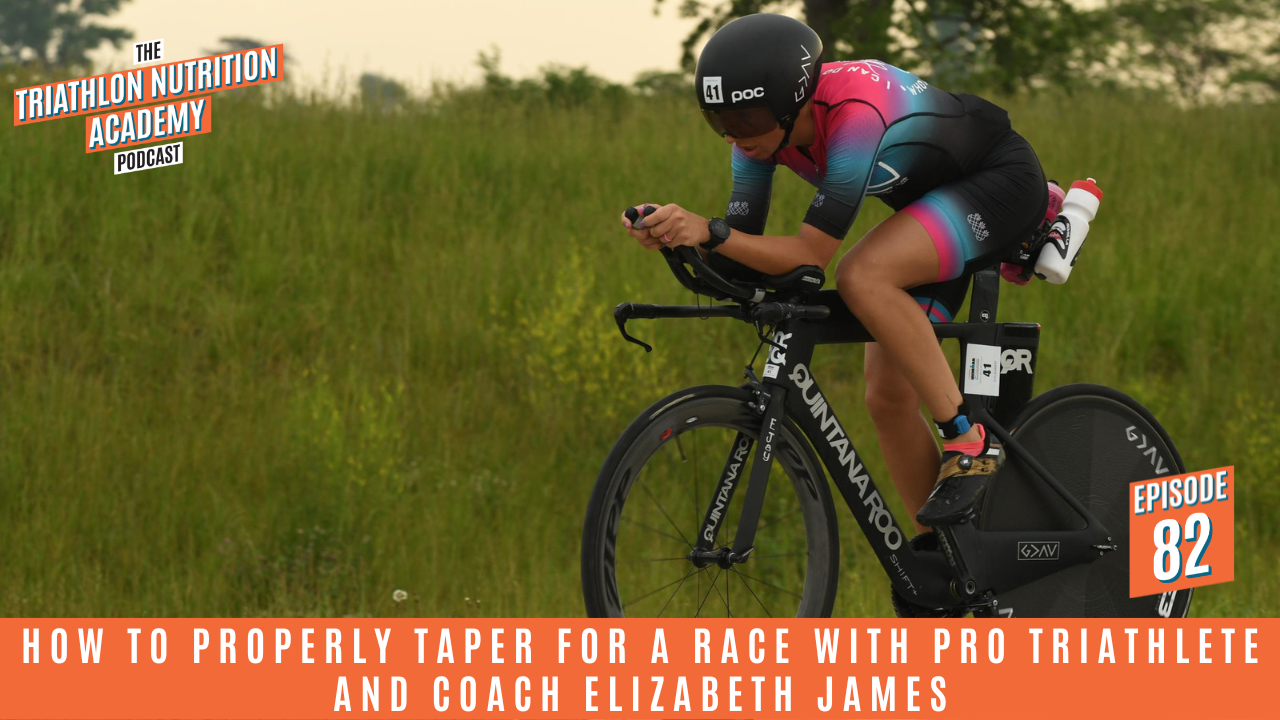
How do you taper for triathlon? How do you taper for Ironman? And how do you optimise your triathlon taper?
I hear lots of mixed messages when it comes to tapering for a triathlon race. You put all this effort into training, not tapering properly can have a massive impact on how you perform on race day.
Pro Triathlete and TriDot Coach, Elizabeth James, recently joined me on the Triathlon Nutrition Academy podcast. She generously shared her knowledge and experience from both the athlete and coaching perspectives.
Tapering is this progressive decrease in training load.
And we got into the details of how to do that and what that means.
- What is an exercise taper?
- A gradual reduction in the training load
- Why do you need to taper? Why is it so important for exercise performance?
- The gradual reduction provides for the physiological adaptation, or rest and recovery, that allows us to be ready for race day
- Tapering allows the body to really replenish and regulate itself ...
How to Become a Faster, More Efficient Swimmer with Brenton Ford
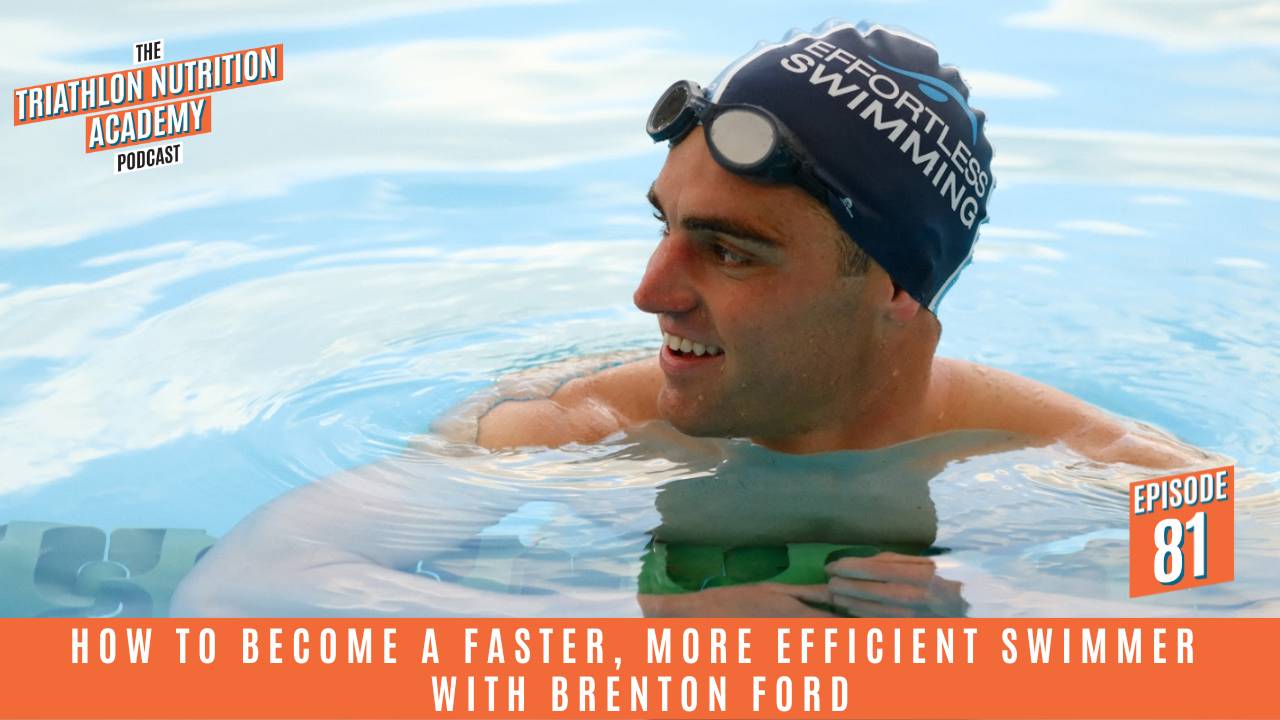
While the swim is the shortest component of a triathlon, it can be the make or break of your race.
Whether you are a natural swimmer or feel like you’re swimming in a washing machine, we can all benefit from improving our technique.
Ex-national swimmer turned swim coach, Brenton Ford of Effortless Swimming, helps everyday athletes like you and me become faster, more efficient swimmers.
He recently joined me on the Triathlon Nutrition Academy podcast where he answered all the questions I know you’d want asked and gave his very practical tips around becoming a confident, faster, more efficient swimmer and improving your race time in the swim.
What are the biggest mistakes triathletes makes when it comes to swim technique (and how do we fix them)?
When assessing someone’s swimming technique I’ll follow a structured order: Body, head, kick, rotation, arms, extremities and timing.
Often one of the biggest mistakes triathletes makes when it comes to their swim technique is body posi...
Are You Avoiding Dairy For The Wrong Reasons?
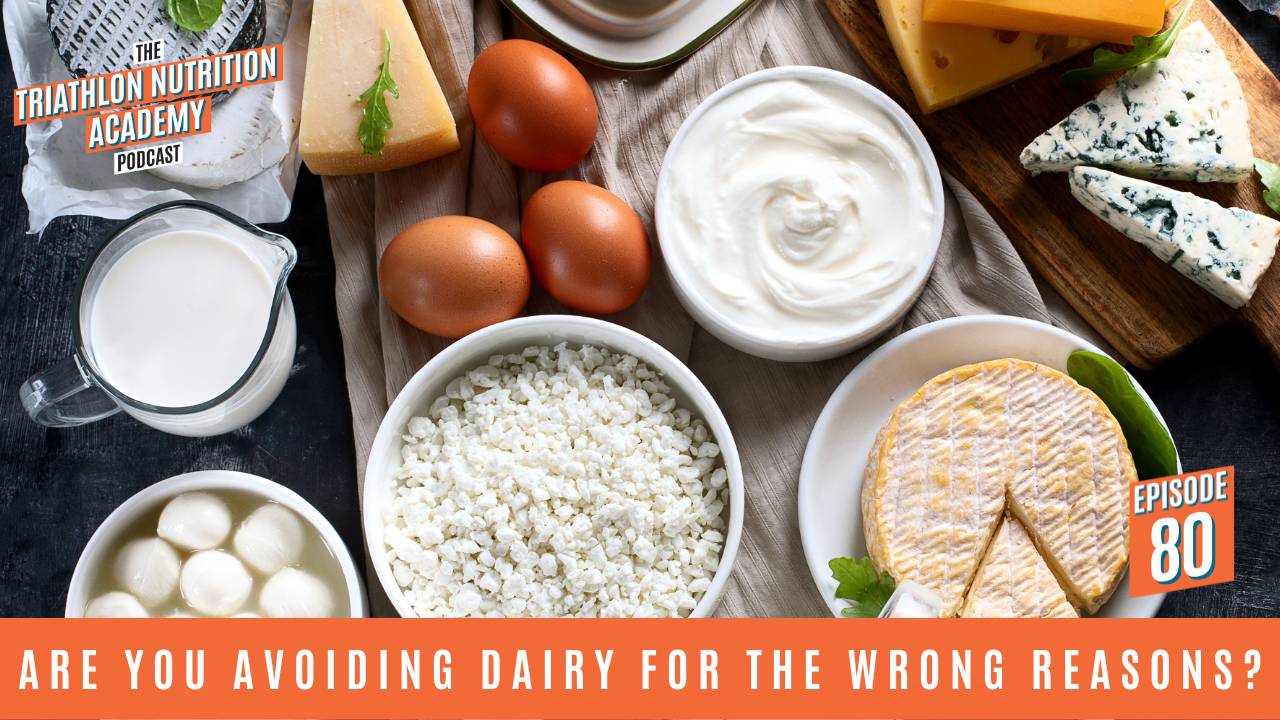
Dairy has got such a bad rep. Put your hand up if you avoid dairy.
It’s common for me to hear of athletes who avoid dairy.
There may be a clinical reason why you don’t tolerate dairy – a milk protein intolerance for example, which typically is diagnosed when you’re a baby. But unless you have an intolerance to dairy, you shouldn’t avoid it - it’s actually a really nutritious food.
- Milk is a great source of protein, carbohydrate and there is no added sugar in milk - unless you’re drinking chocolate milk!
- Milk is also a great source of calcium and other micro nutrients
Problems occur when you avoid dairy and use substitute milk alternatives – they are heavily processed, often don’t contain much protein, have added sugar, and no calcium unless fortified. Basically, expensive water.
So ask the question – are you actually intolerant to dairy, or are you avoiding it for the wrong reasons?
You might actually be lactose intolerant – undiagnosed – don’t tolerate normal milk.
60-70% ...
The Low Carb, High Fat Diet: Is it beneficial for endurance performance? With Professor Louise Burke
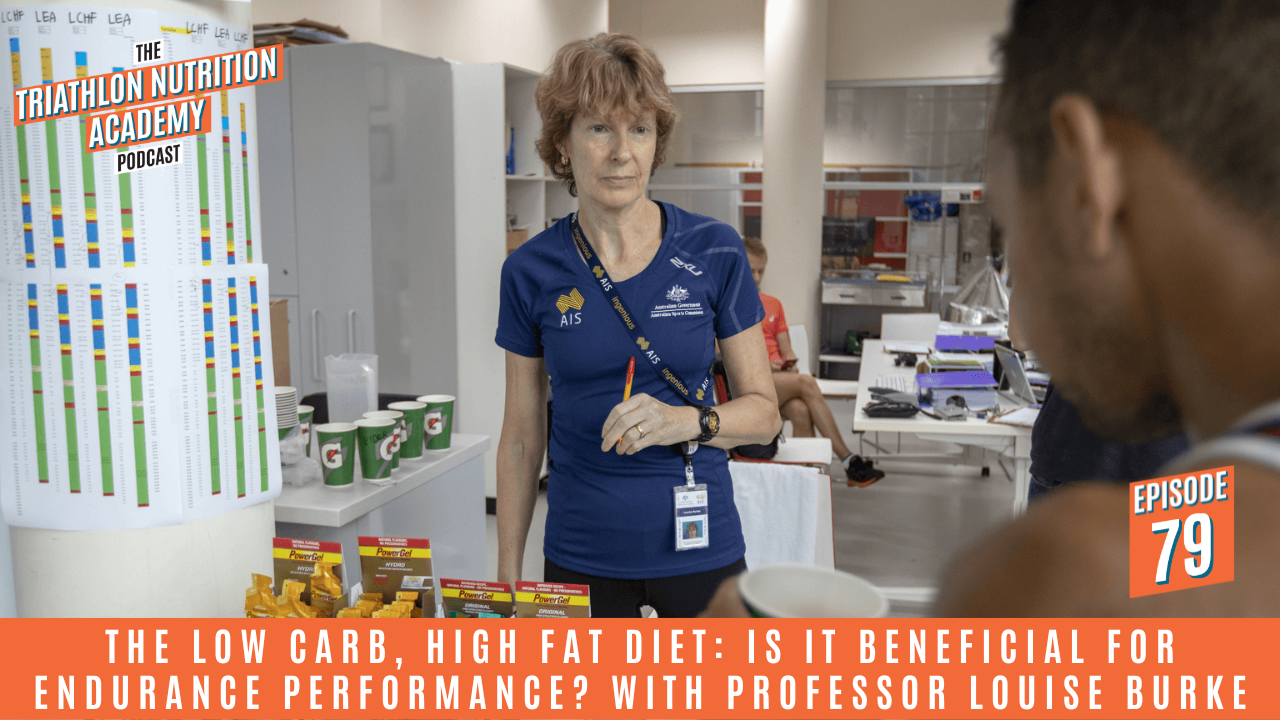
The question being asked today is “Is a low carbohydrate, high fat diet the future of endurance sport?”
And to answer that I asked one of the sports nutrition greats, Professor Louise Burke OAM, to weigh in.
Louise Burke is an Australian Sports Dietitian with 40 years of experience. She worked at the Australian Institute of Sport (AIS) for thirty years, first as Head of Sports Nutrition and then as Chief of Nutrition Strategy and I was very fortunate to work under her during my fellowship at the AIS.
She has contributed over 350 papers in peer reviewed journals & book chapters and was awarded a Medal of the Order of Australia in 2009 for her contribution to sports nutrition.
She is the Chair of Sports Nutrition in the Mary MacKillop Institute of Health Research at Australian Catholic University in Melbourne and leads their Supernova Project - high level research that produces quality answers to some of the critical questions in sports nutrition. Working with and studying enduranc...
Sports Nutrition Trends For 2023
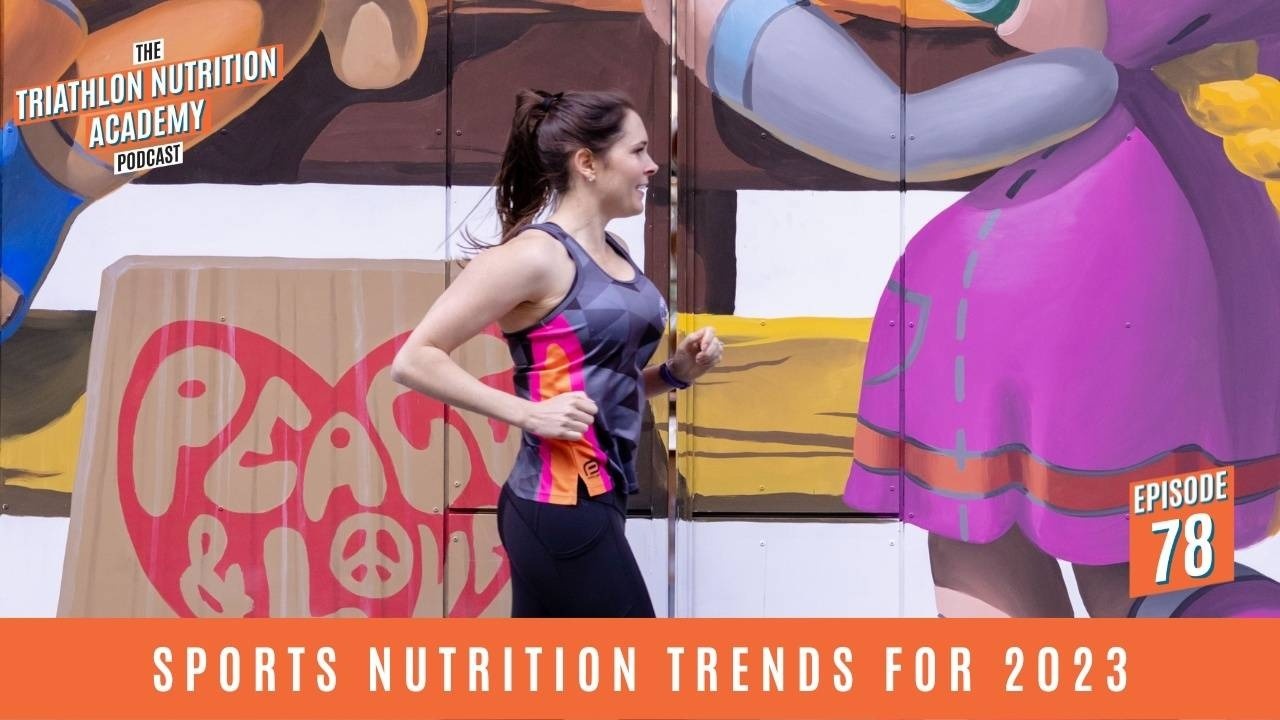
Want to stay abreast of the trends in sports nutrition?
Here are the 6 sports nutrition trends I’m seeing and my sports dietitian assessment of each.
TREND 1 - Blood Glucose Monitoring
You will have seen the pros wearing Blood Glucose Monitors in Kona last year. What are they? How do they work? And do you, as an age grouper triathlete need to monitor your blood glucose to improve your performance?
Continuous glucose monitoring (CGM) devices typically consist of a small pager-like monitoring device that receives a signal from a sensor inserted into the subcutaneous layer. With their 1 - 5 minute measurement interval, they allow blood glucose concentration (BG) dynamics to be captured.
These devices are primarily designed for the use in type 1 and type 2 diabetic individuals to aid Blood Glucose regulation and are well studied in this cohort.
In particular, there is ongoing research to improve carbohydrate delivery and oxidation, resulting in less accumulation of carbohydrate i...


